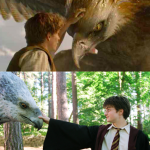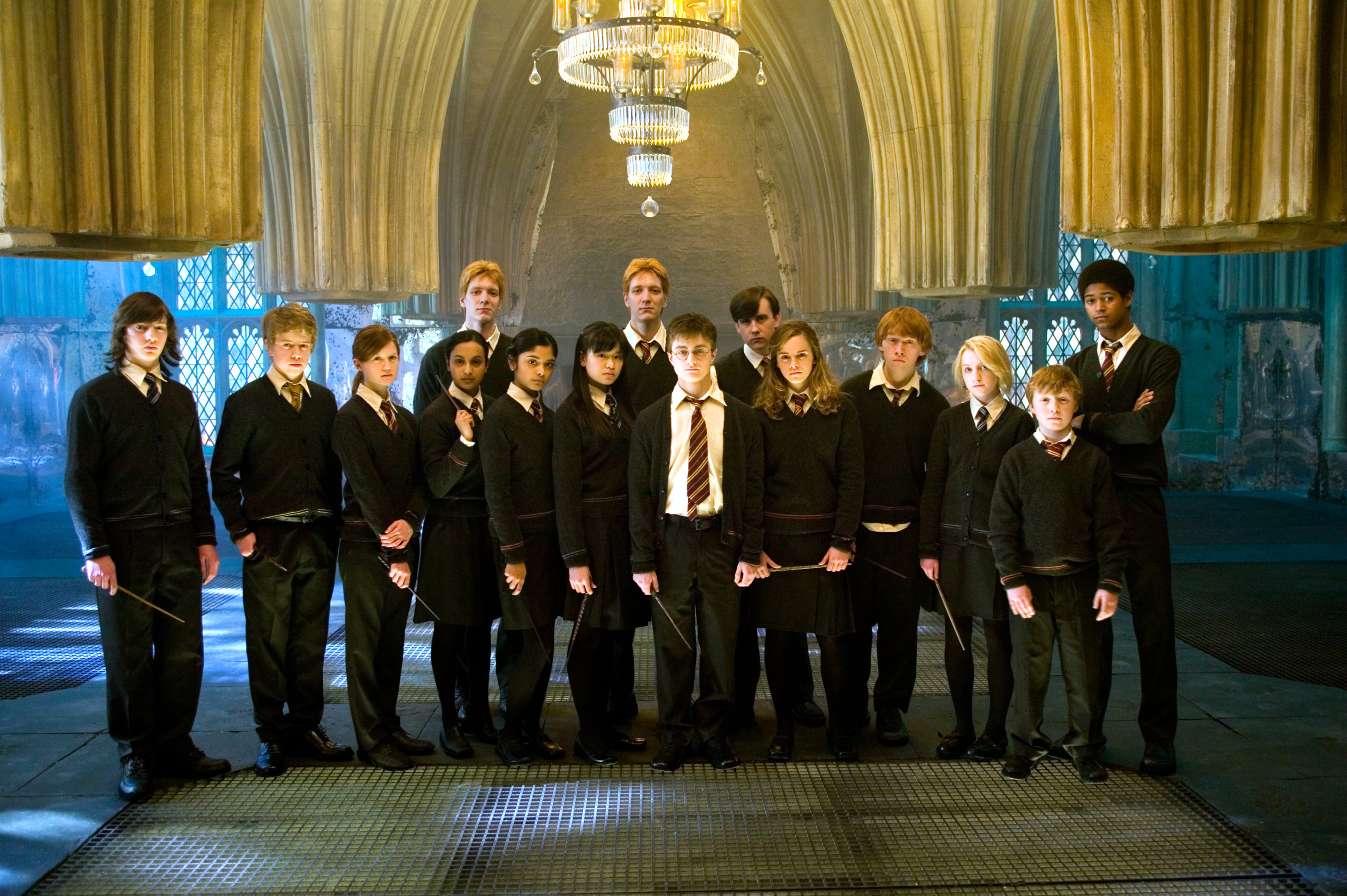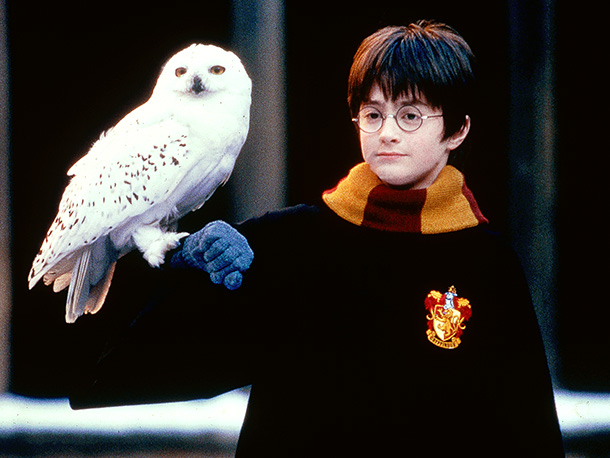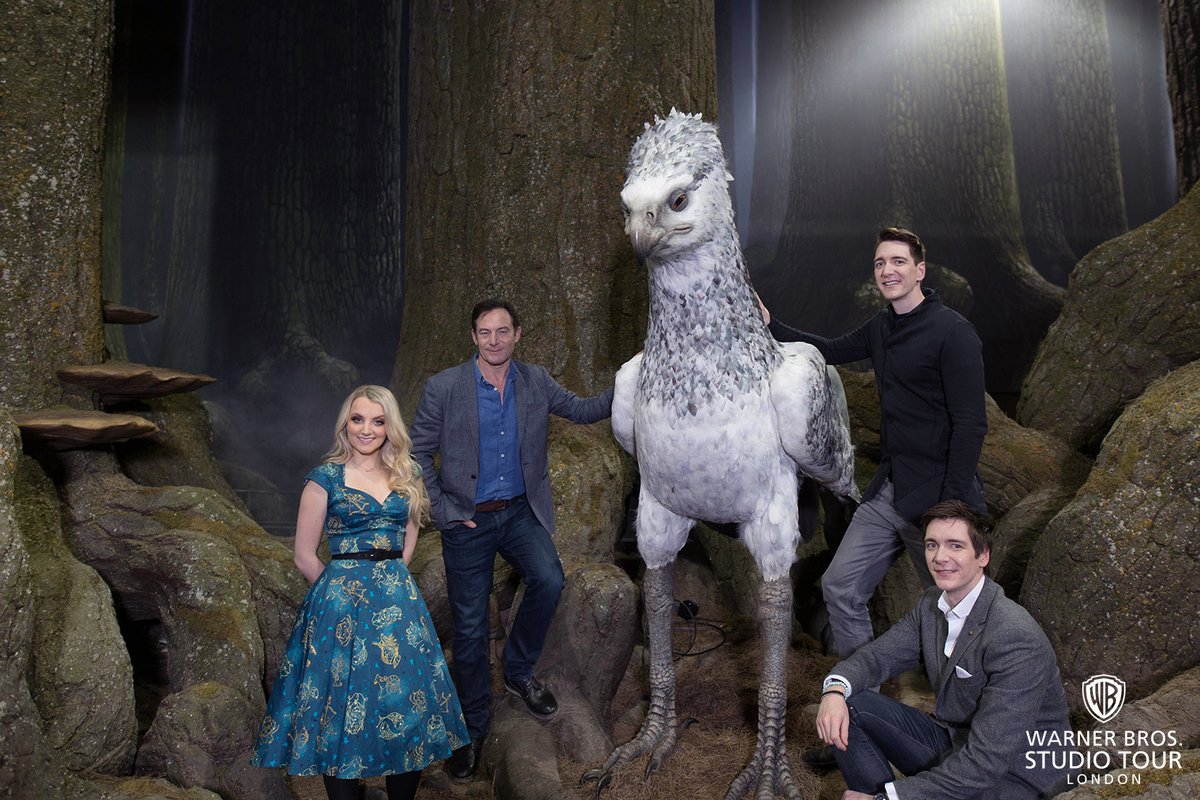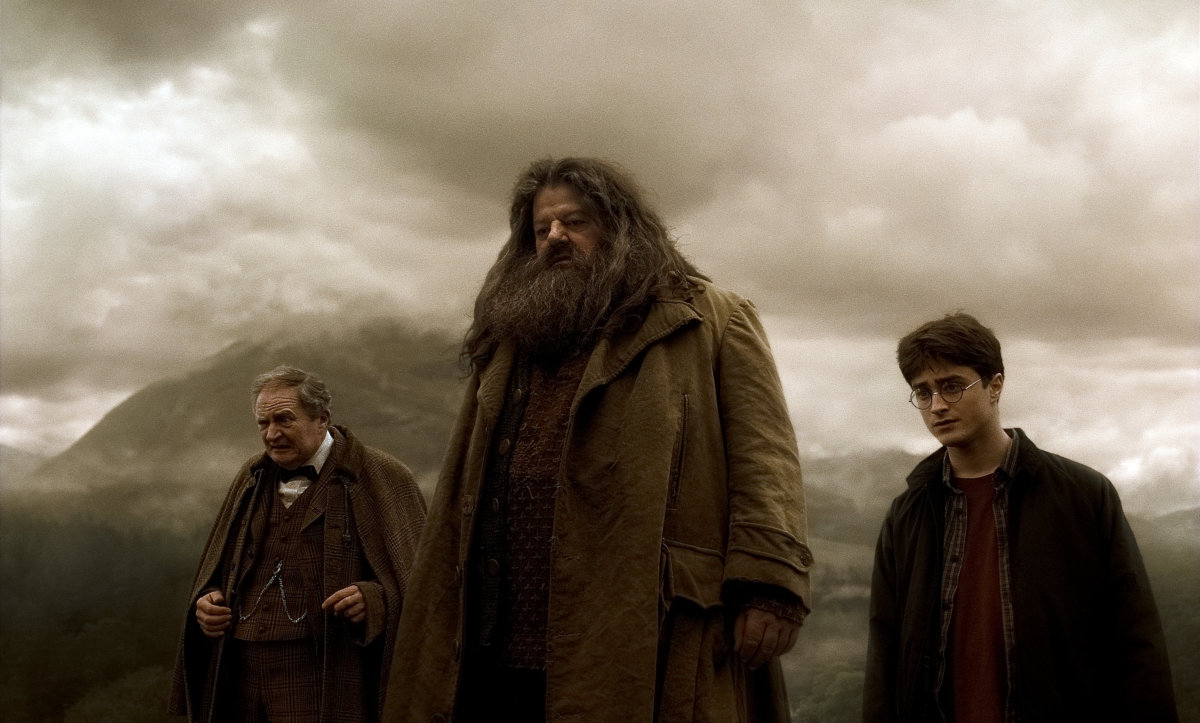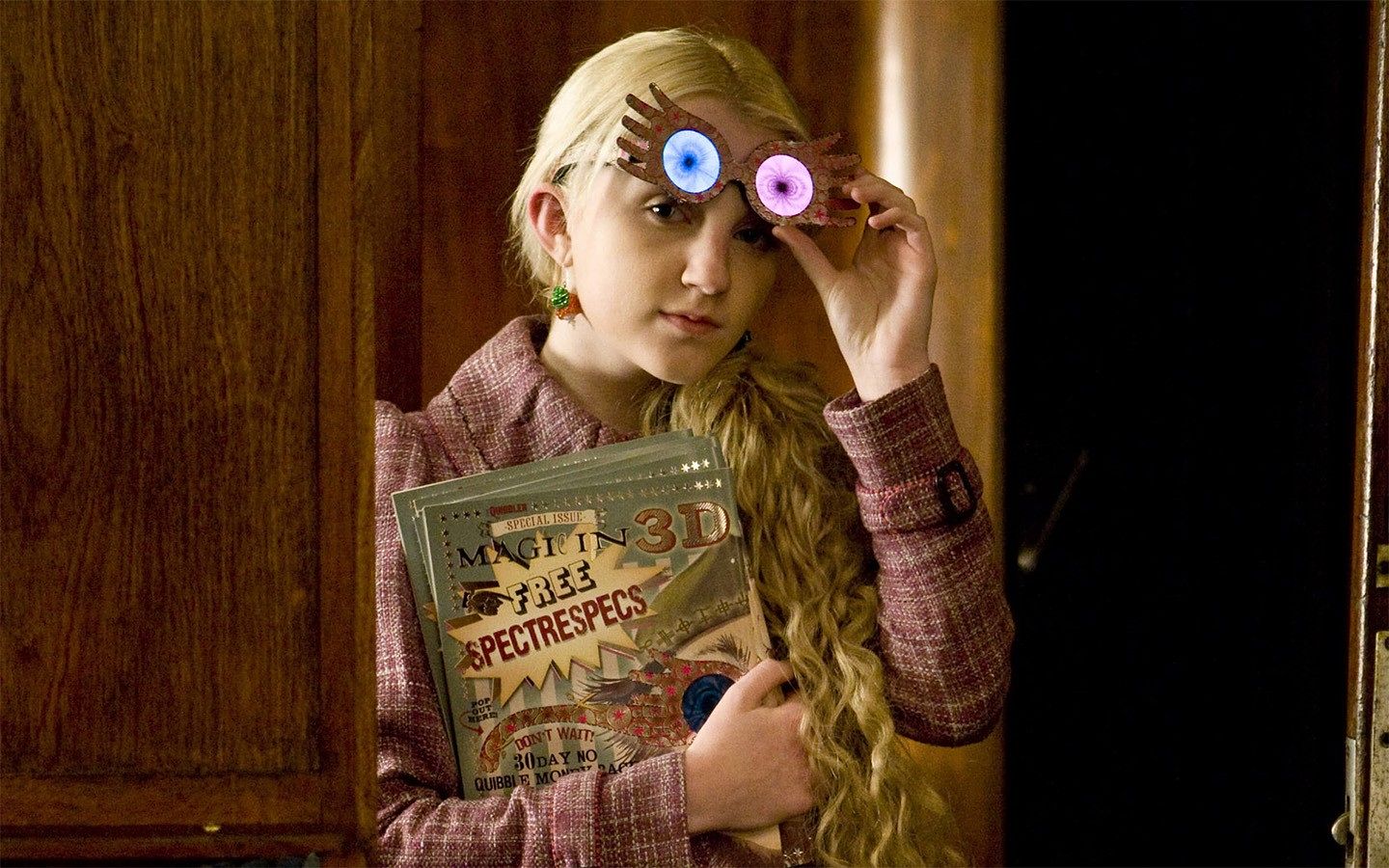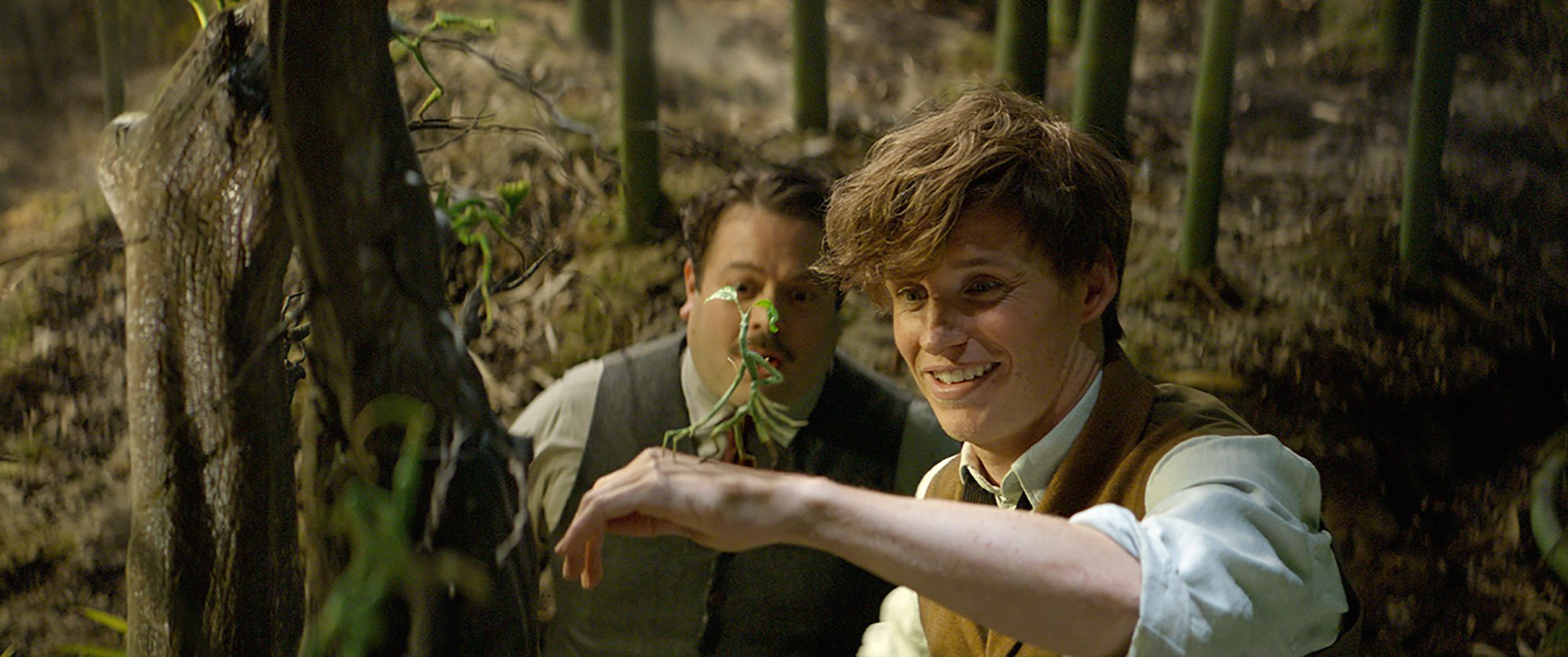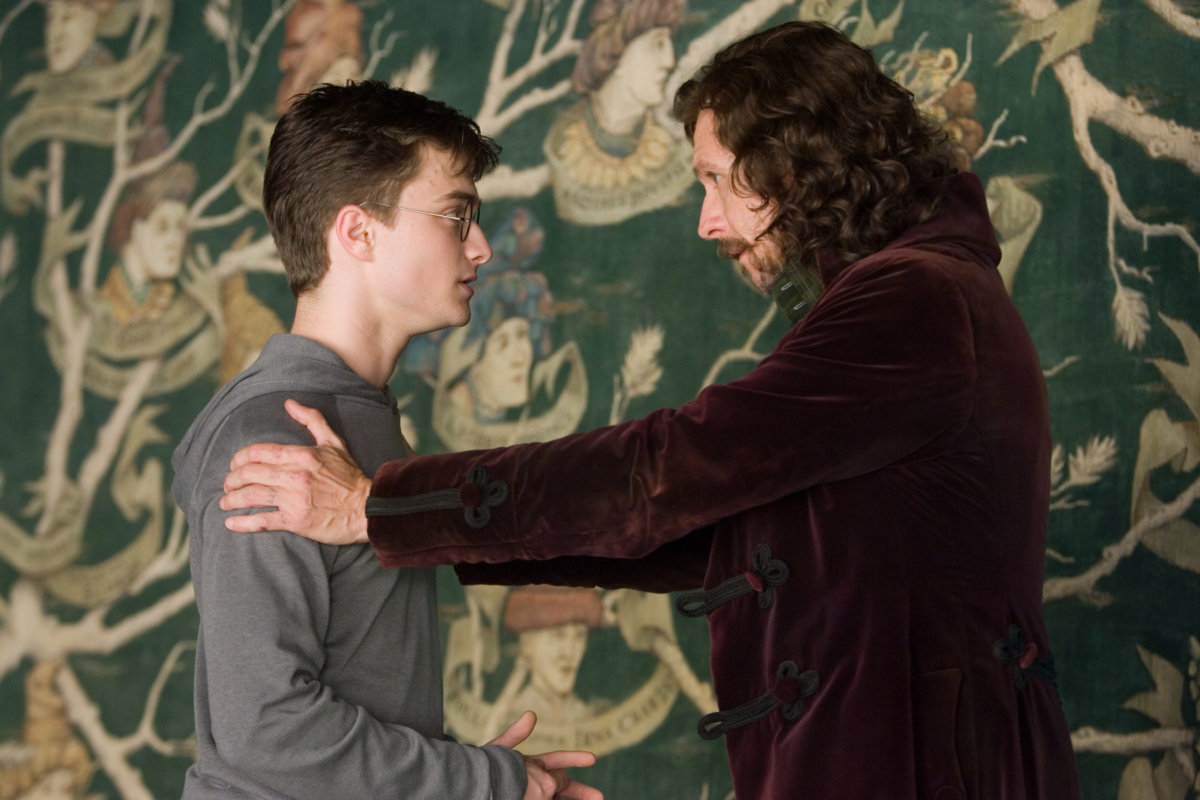One of the most important (and difficult) parts of being an activist is opening the minds of those who wouldn’t have otherwise thought twice about the issue you’re trying to raise awareness of, and involving as many people as possible in finding solutions to huge problems in the world. It’s not hard to find activist messages throughout the Harry Potter series, and Fantastic Beasts appears to be continuing this trend. J.K. Rowling founded real-world charity Lumos, and has inspired countless groups of activists to become agents of change in the world. There’s no doubt that the wizarding world is a force to be reckoned with when it comes to inspiring ethics and acts of goodness, but which moments stand out the most for their clear ties to activism?
The Chickpeeps (a vegan podcast hosted by
Harry Potter‘s Evanna Lynch and Robbie Jarvis,
The Fantastic Beast Foundation’s Tylor Starr, and healer / ocean activist Momo Hill) will host a special
Harry Potter themed episode on January 10th, and recently asked for input on messages of activism and animal rights in the wizarding world:
How did J.K. Rowling share and inspire activist messages? Which characters represented the need to stand up for what you believe in the most? What animal rights messages are there in the series? Let’s take a look!
1) S-P-E-W
“It’s slavery, that’s what it is! … Why doesn’t anyone do something about it?” – Hermione’s response to Winky’s mistreatment (Goblet of Fire)
The Society for the Promotion of Elvish Welfare (S-P-E-W) was the outcome of Hermione’s horror at the treatment of house-elves, beginning with her response to Barty Crouch’s treatment of Winky at the Quidditch World Cup in Goblet of Fire. Uncovering the sad truth – that house-elves are treated as slaves and lesser beings, and their loyalty to wizards is thoroughly exploited – she was horrified to find that house-elves were used to cook, clean and perform menial tasks at Hogwarts. She initially refused to eat, but later settled on setting up a society (S-P-E-W) to take a stand against what she saw as gross injustice.
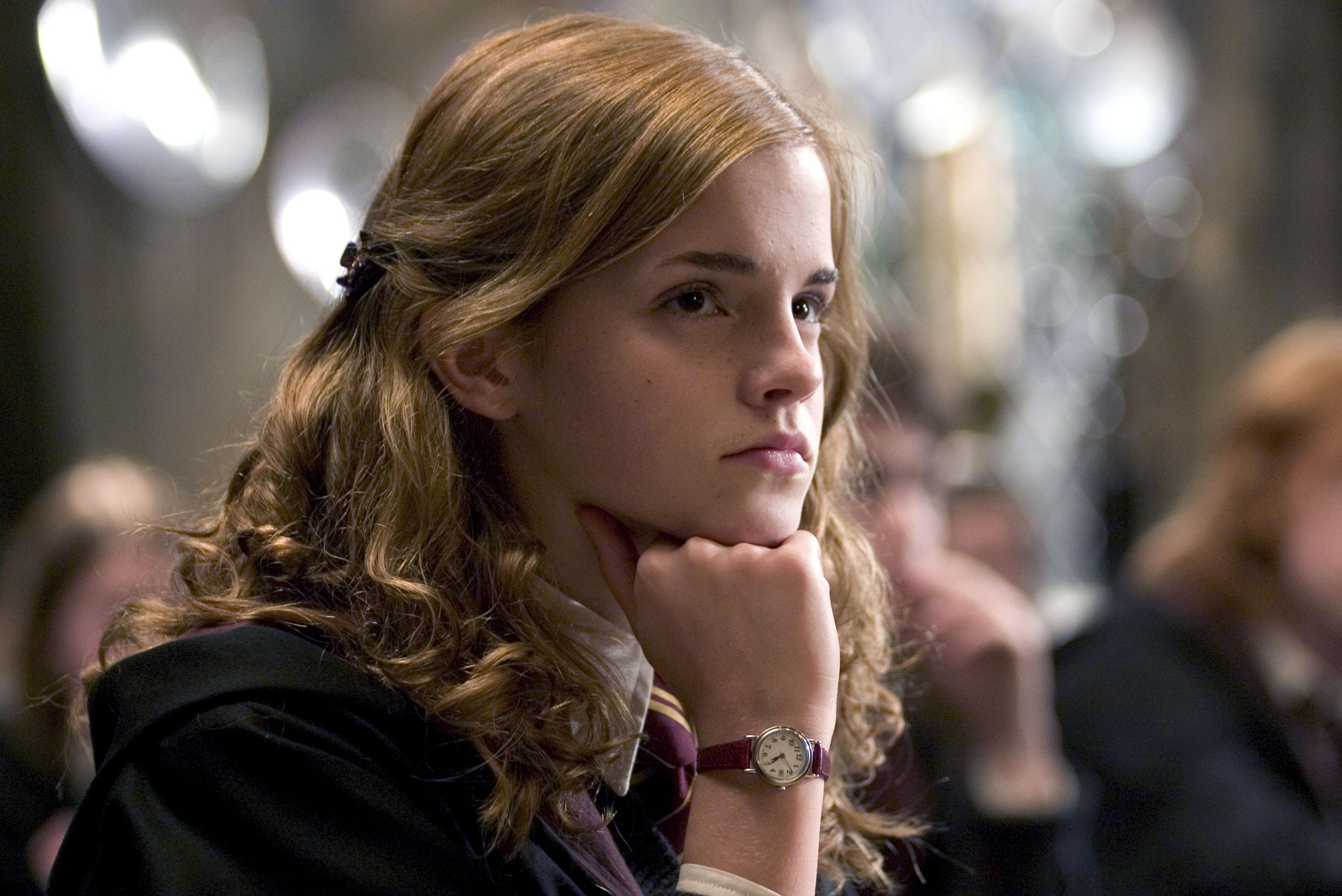
The issue of elvish welfare was revealed to be complicated and two-sided amongst house-elves. Dobby, for instance, was delighted to have been freed from the Malfoys in Chamber of Secrets, and thrived in his newfound freedom. However, in Goblet of Fire, he was scorned by Winky (as she sat saving a seat for her Master, Barty Crouch, in the top box at the Quidditch World Cup whilst admitting she was petrified of heights). Even Hagrid admitted that he thought it was kinder to let house-elves work. The argument is reminiscent of the debate that animals are ‘made’ to be eaten, or that it’s natural and enjoyable for them to work for humans (e.g. using horses to race or as a means of transport). Should the discussion of elvish welfare and apparent slavery be taken more seriously in the wizarding world?
2) Dumbledore’s Army / The Order of The Phoenix
“Harry, don’t you see? This… this is exactly why we need you… We need to know what it’s really like… facing him… facing V-Voldemort.” – Hermione on initiating Dumbledore’s Army
“This is the first chance we’ve had to do something real — or was that all just words to you?“ – Neville’s insistence that the DA should fight in the Battle of the Department of Mysteries
Dumbledore’s Army, starting as a rebellion against Umbridge’s impractical Defense Against the Dark Arts lessons in the aftermath of Voldemort’s return, is one of the most obvious symbols of the power of activism. Harry inspires members of the DA to believe in their abilities, and each of them in turn show their capabilities to stand up against injustice and darkness and achieve things they never would have imagined before having a reason to fight.
Harry’s influence on Neville is particularly touching, giving him the confidence to believe in himself, and ultimately leading him to be the complete badass he is in Deathly Hallows. Not many people would help reunite the DA and even backchat Voldemort, but Neville did! Through the DA, Rowling shows the power of communities and peer support in activist circles, and the importance of generously sharing knowledge, confidence and resources.
3) Empathy and Animal Companions
“Hedwig’s large round amber eyes gazed reproachfully at him over the dead frog clamped in her beak… In addition to every other miserable feeling, he now felt guilty that he’d been irritable with Hedwig; she was the only friend at he had at number four, Privet Drive.” – Order of the Phoenix
As discussed throughout The Chickpeeps, empathy is a fundamental principle of veganism and activism in general, and the theme of animal companions in the wizarding world represents this perfectly (though at times problematically). Harry’s connection with Hedwig, the incredible intelligence of Crookshanks, Ginny’s love of pets (particularly Arnold), Dumbledore’s relationship with Fawkes, Hagrid and his many pets and Newt’s joy in sharing his love of fantastic beasts all represent the connections people make with animals in the real world, and symbolise the need to discuss the intelligence and agency of animals and the need for animal rights.
However, wizarding culture is wrought with inconsistencies on animal rights, much like the real world. Given the fact that many creatures in the wizarding world are magically gifted and appear to have higher levels of emotional intelligence and abilities to understand and communicate with wizards, it’s baffling the level to which meat and products from animals and magical creatures are used. From quills and dragonhide clothing, horrific potions ingredients, chained dragons in Gringotts, dragons used as entertainment in the Triwizard Tournament and exhausted delivery owls collapsing worldwide, the place of creatures in the wizarding world is just as complicated and messy (if not more so!) than in the muggle world.
4) Buckbeak’s Trial
“‘Yeh don’t know them gargoyles at the Committee fer the Disposal o’ Dangerous Creatures!’ chocked Hagrid, wiping his eyes on his sleeve. ‘They’ve got it in fer interestin’ creatures!'” – Prisoner of Azkaban
Hermione and Hagrid did their utmost to save Buckbeak in Prisoner of Azkaban, and the trio’s horror at his (initial) execution at the hands of Macnair from the Committee for the Disposal of Dangerous Creatures after hours spent at the library trying to form a strong argument in Buckbeak’s favour represents a fight for animal rights. We learn a lot about the place of magical creatures in wizarding society from Buckbeak’s trial and conviction, but Dumbledore’s involvement in Harry and Hermione’s successful efforts to save Buckbeak show that the fight for justice is far from over!
5) Hagrid
““I’ve decided to call him Norbert,’ said Hagrid, looking at the dragon with misty eyes. ‘He really knows me now, watch. Norbert! Norbert! Where’s Mummy?'” – Philosopher’s Stone
From defending every misunderstood magical creature he could, to crying at Aragog’s funeral and Norbert(a)’s departure, Hagrid was an incredibly sensitive soul with a passion for sharing his adoration of magical creatures. Mocked by Malfoy (and even his coworkers), Hagrid could easily represent the adversity animal rights activists overcome to stand up for their beliefs.
6) The Lovegoods
“You can laugh! But people used to believe there were no such things as the Blibbering Humdinger or the Crumple-Horned Snorkack!”
“Well if I were You-Know-Who, I’d want you to feel cut off from everyone else. Because if it’s just you alone you’re not as much of a threat.”
Luna Lovegood may have seemed ‘loony’ to some, but you can’t deny the passion with which she stood up for what she believed in. Her values were pure and empathetic, and as a Ravenclaw she had a knack for look at situations in a way nobody else could – often giving more depth to discussions of ethics and strategy. J.K. Rowling called her the ‘antithesis’ of Hermione, and it’s her open-mindedness which arguably made Luna a great activist.
7) Newt Scamander
“Tina: Mr. Scamander, do you know anything about the wizarding community in America?Newt: I do know a few things, actually. I know you have rather backwards laws about relations with Non-Magic people. That you’re not meant to befriend them. That you can’t marry them, which seems mildly absurd to me.” – Fantastic Beasts and Where to Find Them
Newt’s case acts as a conservation center for endangered and/or injured magical creatures (basically Hagrid’s dream). Often misunderstood by the wizarding community, these ‘fantastic beasts’ have basically been driven outside of society. In the face of MACUSA’s accusations that his creatures were dangerous, Newt was adamant that they were misunderstood and needed care. Explaining his aims to share the joys of magical creatures through his book with Tina, and speaking out against the ‘backwards’ and ‘absurd’ laws meant to hide the wizarding community in America, Newt’s first steps into the realms of activism begin in Fantastic Beasts. We’re sure that will create an interesting lead into the rise of Grindelwald in the second film!
8) Being The Change You Want To See In The World
“I want you to listen to me very carefully, Harry. You’re not a bad person. You’re a very good person, who bad things have happened to. Besides, the world isn’t split into good people and Death Eaters. We’ve all got both light and dark inside us. What matters is the part we choose to act on. That’s who we really are.” – Sirius Black (Order of the Phoenix)
“Even though we’ve got a fight ahead of us, we’ve got one thing that Voldemort doesn’t have … Something worth fighting for.” – Harry Potter (Order of the Phoenix)
“I DON’T CARE!” Harry yelled at them, snatching up a lunascope and throwing it into the fireplace. “I’VE HAD ENOUGH, I’VE SEEN ENOUGH, I WANT OUT, I WANT IT TO END, I DON’T CARE ANYMORE!”
“You do care,” said Dumbledore. He had not flinched or made a single move to stop Harry demolishing his office. His expression was calm, almost detached. “You care so much you feel as though you will bleed to death with the pain of it.” – Order of the Phoenix
Standing up for what you believe in and trying to make a difference in the world can be hard, lonely and thankless at times. Harry discovered this in Order of the Phoenix, and his frustrations and fears delivered some of the most poignant scenes of the series. J.K. Rowling’s representations of Harry’s raw, emotional reactions to injustice and darkness throughout the series allow us to see into the complicated world of ethics and activism, but ultimately show us that compassion and dedication are two of the most important values one can possess.
What are your thoughts on activism, animal rights, environmentalism, veganism and ethics in the wizarding world? How has
Harry Potter inspired you? Share your thoughts with
us,
The Fantastic Beasts Foundation and
The Chickpeeps ahead of their special Harry Potter discussion, coming Wednesday!
